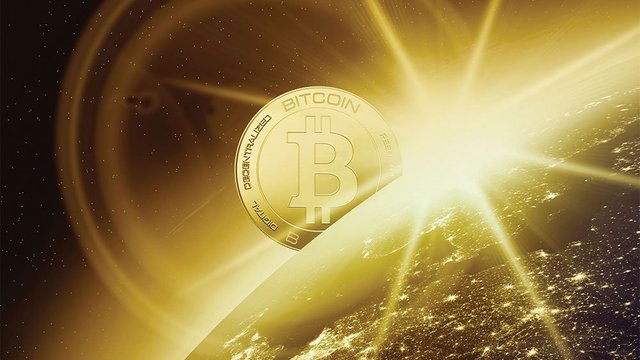Bitcoin and blockchain technology have taken off as they gain more mainstream acceptance, from exchange operators like CME (CME) and CBOE (CBOE) to Wall Street investment banks and mobile payment company Square (SQ). Other cryptocurrencies are also trying to become viable alternatives to traditional, government-issued money.
But prices have been volatile recently, and new currencies keep appearing, leaving individual investors wondering where they are headed next. Meanwhile, top banks like JPMorgan Chase (JPM) are evaluating blockchain as a cheaper way to settle transactions.

The rise of blockchain technology may also threaten the dominance of FANG stocks — Facebook (FB), Amazon.com (AMZN), Netflix (NFLX) and Google parent Alphabet (GOOGL).
GBTC: Is this Bitcoin stock a buy right now?
Oppenheimer analyst Tim Horan says, ""We believe that blockchain technology will be as important as the internet was to economic and social change in the past 25 years. With blockchain, the community of users owns and pays for the servers instead of having a centralized organization like the FANGs, driving better innovation." In response to this emerging revolution, Facebook launched its own blockchain division.
Bitcoin And Cryptocurrency News
More people are investing in Bitcoin after an avalanche of coronavirus stimulus shocked the cryptocurrency back to life last year. But as the price of Bitcoin foams higher — sweeping up everything from Elon Musk to the country's oldest bank to the Oakland A's — questions have been reignited over whether the digital asset truly has a place in the world of mainstream investing.
Bitcoin evangelists and recent converts, having shaken off the cryptocurrency's 2018 crash, say this time is different. They see room for ample returns, wider institutional interest, wider access to funds, options and futures. They talk about Bitcoin becoming part of more IRAs, 401(k)s and estate plans.
"We're going to see a whole new industry emerge, a whole new banking system emerge, around how to deal with this new type of investment," said Bill Barhydt, a Bitcoin investor and CEO of the cryptocurrency investment app Abra.
Recent weeks have seen major milestones for investing in Bitcoin. News broke in March that Morgan Stanley (MS) would be the first big bank to give wealthy clients access to funds that enable Bitcoin ownership. Rival Goldman Sachs (GS) then made a similar move. Now top cryptocurrency exchange Coinbase expects to go public April 14. And on Thursday, Robinhood said 9.5 million customers traded cryptocurrencies on its app in Q1, up from 1.7 million in Q4.
But volatility, insurance and security issues remain roadblocks to bringing traditional investors aboard. So does the possibility of another crash. Bitcoin's massive energy consumption could be an obstacle in an increasingly ESG universe. And many people still wonder whether investing in Bitcoin is good for anything besides making Bitcoin permabulls richer.
"Bitcoin's future is thus still uncertain," Citi GPS (Global Perspectives and Solutions) analysts said in a report in March. But "developments in the near term are likely to prove decisive as the currency balances at the tipping point of mainstream acceptance or a speculative implosion."
Investing In Bitcoin Vs. Paying With Bitcoin
The new Bitcoin mania has pushed its price close to $60,000 again. Other cryptocurrencies, like Ethereum, have hit record highs. The enthusiasm has spilled over into other digital assets like non-fungible tokens (NFT), which render things like artwork or music as verifiable pieces of property that can be sold.
Mike Winkelmann, an artist known as Beeple, sold an electronic image in NFT form for $69.3 million. The rock group Kings of Leon released its most recent album via NFT. A New York film director sold recordings of human flatulence in NFT form.
Bitcoin's original intent can thus be hard to find. That is, a currency that would function like cash yet unfettered from central banks and monetary policy. But Chainalysis found that in 2020, just 0.5% of Bitcoin transactions were made for the purpose of buying something from merchants. That figure is actually smaller than in 2019, in large part due to the boom in trading.
"Bitcoin is a speculative commodity with no use case," said David Gerard, an author of two books on cryptocurrency and blockchain. "There is nothing you can do with Bitcoin except sell it on to someone else. It's like a great big game of hot potato with a price tag."
He also noted questions surrounding Tether, a type of cryptocurrency pegged to the dollar. Companies that oversee Tether recently settled with New York state after that state said, "Tether's claims that its virtual currency was fully backed by U.S. dollars at all times was a lie." The inquiry, Gerard said, raised questions about how much money is actually in the cryptocurrency system.